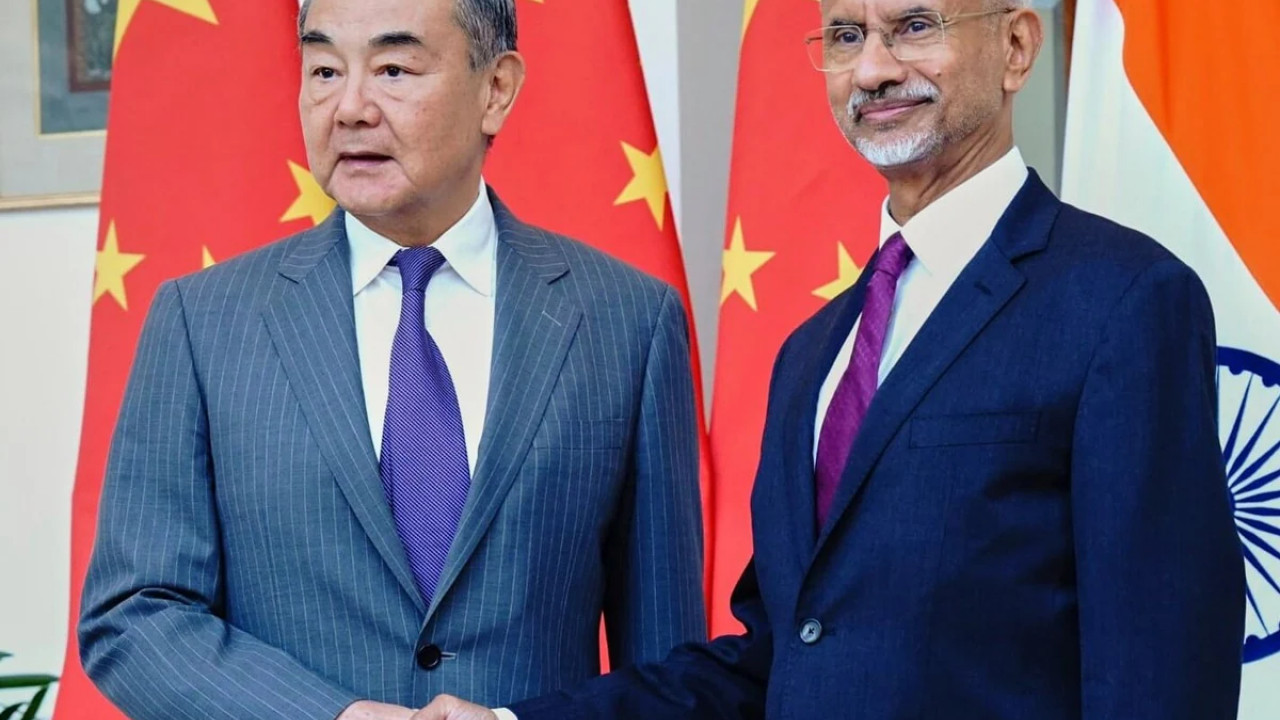
Beijing’s Propaganda on Taiwan During Wang Yi’s India Tour Sparks Controversy
International News: During the ongoing visit of Chinese Foreign Minister Wang Yi to New Delhi, a controversy has arisen over Beijing’s claims regarding India’s position on Taiwan. China claimed that Jaishankar acknowledged “Taiwan as part of China” during his meeting with Wang Yi. However, India’s official statement makes no such reference, raising serious doubts about Beijing’s narrative.
For over a decade, India has avoided mentioning the “One China policy” in its joint statements with Beijing. One of the main reasons is that China’s version of the policy includes Arunachal Pradesh, which India considers an integral part of its territory. This makes it impossible for New Delhi to officially endorse Beijing’s interpretation.
Despite this, Chinese state media has been actively promoting the claim that Jaishankar supported the “One China principle.” Experts say this is part of Beijing’s propaganda aimed at influencing both its domestic audience and people in Taiwan.
China’s claim was strongly refuted by Sana Hashmi, an Indian expert on Taiwan relations. She said this is another example of Beijing’s disinformation campaign, designed to isolate Taiwan diplomatically and to show its own people that India stands with China. She also highlighted that China wants to distance India from Taiwan and exploit any possible differences between New Delhi and Washington.
According to her, as long as India maintains its own “One India policy,” it cannot accept Beijing’s version of the “One China policy.” She stressed that the Indian government is accountable to its people and cannot compromise on territorial issues.
In reality, Jaishankar’s official statement focused on peace and stability along the India–China border. He emphasized that any forward movement in bilateral relations depends on maintaining calm in border areas. He pointed out that reducing tensions at the Line of Actual Control (LAC) is essential for trust-building.
During his talks with Wang Yi, Jaishankar mentioned that Wang would also meet National Security Adviser Ajit Doval to discuss boundary issues. He underlined that peace along the border is the foundation of positive ties between the two nations.
This is another disinformation campaign, aimed at a domestic audience, people in Taiwan, distancing India from Taiwan & exploit the rift with the US.
— Sana Hashmi | 胡莎娜 🇮🇳 (@sanahashmi1) August 19, 2025
Why is this another form of deception:
1. 🇮🇳 does not, and cannot, endorse the One China policy when there is no One India policy.… https://t.co/YmmImO3cnb
The meeting also covered global and regional issues. Jaishankar noted that when the two largest countries in the world meet, it is only natural for them to discuss the international order. He called for a fair, balanced, and multipolar world system and underlined the need for stronger multilateral cooperation.
The discussions included cooperation in trade, economy, pilgrimages, cultural exchanges, river data sharing, border trade, and connectivity. Jaishankar emphasized that both nations must build relations on respect, sensitivity, and shared concerns. He cautioned that disagreements should not turn into disputes, and competition should not escalate into conflict.
Meanwhile, Chinese Foreign Ministry spokesperson Mao Ning said Wang Yi’s visit aims to implement the consensus reached between leaders of both countries. She added that Beijing wants to increase high-level exchanges, build political trust, and resolve differences appropriately. She also noted that the 23rd round of border talks in Beijing had achieved some common ground on boundary management, exchanges, and cooperation.
The episode highlights how differently India and China view sensitive issues like Taiwan and Arunachal Pradesh. While Beijing continues to push its propaganda, India remains cautious and firm on protecting its territorial integrity. The coming months will show whether both sides can balance their differences and move towards a more stable partnership.





Copyright © 2026 Top Indian News
